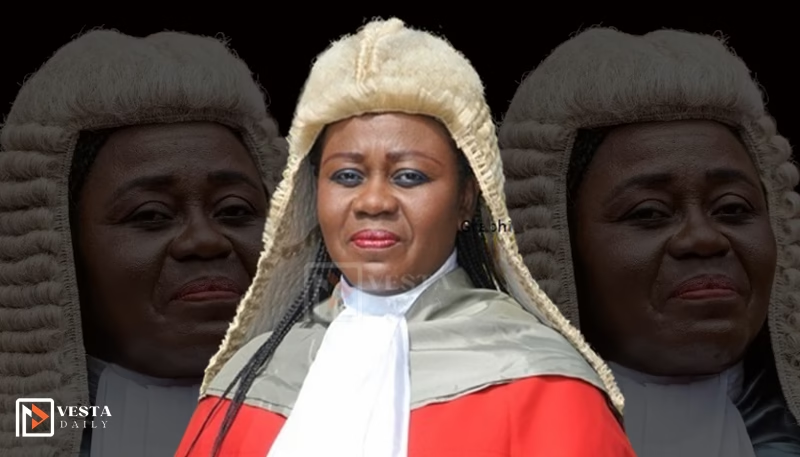Ghana’s Judiciary in Crisis: The Case for Removing the Chief Justice
Ghana’s judiciary faces mounting scrutiny as calls for the Chief Justice’s removal intensify. Allegations of corruption, political interference, and systemic inefficiencies have severely damaged public trust in the legal system.
With the judiciary’s integrity at stake, many argue that leadership change is necessary to restore confidence in Ghana’s courts. Below, we break down the key concerns fueling these demands.
The call for the removal of Ghana’s Chief Justice has gained traction due to several concerns surrounding the judiciary’s integrity, transparency, and efficiency. While the Chief Justice is expected to uphold justice impartially, allegations of misconduct, judicial bias, and administrative failures have raised questions about whether they remain fit for office.
1. Corruption Allegations: Is Justice for Sale?
One of the strongest arguments for removal revolves around persistent corruption claims:
Favoritism in rulings – Reports suggest some cases are decided based on connections rather than merit. Some litigants with powerful political or financial backing receive favorable rulings, raising concerns about the integrity of the judicial process.
Bribery scandals – There have been numerous allegations that judges accept bribes to influence verdicts. This erodes faith in the judicial system, as ordinary citizens believe they cannot get fair hearings unless they can afford to bribe officials.
Lack of transparency – Many judicial dealings take place behind closed doors, making it difficult to track accountability. The absence of open court procedures and independent oversight mechanisms allows corruption to flourish.
📌 Related Reading: Transparency International’s Report on Judicial Corruption
2. Political Interference: Is the Judiciary Truly Independent?
The judiciary must remain impartial, yet concerns persist over political manipulation:
High-profile cases influenced by politicians – Several court rulings have been questioned for favoring those in power. There are instances where politically connected individuals escape justice while opposition figures face questionable charges.
Pressure on judges – Some judges reportedly face intimidation and coercion to deliver verdicts that align with political interests. This pressure compromises the judiciary’s independence and reduces public confidence in its ability to function impartially.
Erosion of checks and balances – A judiciary that bows to political pressure weakens democracy. If the courts can no longer act as an independent check on the executive and legislative arms of government, the entire democratic structure is at risk.
📌 Expert Insight: Afro Barometer’s Data on Public Trust in African Judiciaries
3. Chronic Delays: A Justice System in Gridlock
Justice delayed is justice denied—yet case backlogs keep growing:
Years-long delays – Many Ghanaians wait for years to get justice, with some cases dragging on indefinitely. These delays frustrate victims and embolden wrongdoers who exploit the system’s inefficiencies.
Poor case management – The judiciary’s inability to efficiently handle its caseload points to failed leadership. Many cases are stalled due to a lack of resources, outdated processes, and inefficient scheduling.
Economic consequences – The sluggish judicial process negatively affects businesses. Companies involved in contractual disputes face long delays in resolution, which discourages investment and economic growth.
📌 Comparative Study: How Rwanda Reduced Court Backlogs by 60%
4. Lack of Accountability: Are Judges Above the Law?
Without consequences for misconduct, judicial impunity thrives:
Unethical judges face no punishment – Numerous reports of unethical behavior by judges often go unpunished. Many judicial officers continue to serve despite serious allegations against them.
Weak disciplinary mechanisms – The Judicial Council, responsible for overseeing judicial conduct, has been criticized for failing to take decisive action against corrupt or unethical judges.
Public perception of a “protected class” – Many citizens believe judges operate above the law and are immune from scrutiny. This perception further deepens the trust deficit between the public and the judiciary.
📌 Recommended: UNODC’s Guidelines on Judicial Accountability
5. Collapsing Public Trust: Can the Judiciary Recover?
When citizens stop believing in courts, the entire legal system crumbles:
Declining confidence – Surveys show a rising distrust in the judiciary’s fairness and impartiality. Many people view the courts as tools for the powerful rather than institutions of justice.
Reluctance to seek legal redress – Due to their lack of trust in the legal system, many Ghanaians prefer informal settlements and traditional mediation over court proceedings.
Threat to democracy – A judiciary that lacks public trust weakens the rule of law. If people do not believe they can get fair justice in court, lawlessness and vigilantism may rise, threatening national stability.
📌 Solution: Strengthening judicial oversight, ensuring transparency, and enforcing strict disciplinary measures against corrupt judges can help restore confidence in Ghana’s legal system.
Conclusion
The Chief Justice must be held accountable for these failures. If they are unable to restore integrity, efficiency, and independence to the judiciary, then their removal is necessary to rebuild public confidence in Ghana’s legal system. Judicial reform starts with leadership change, ensuring that those in power prioritize justice over personal or political interests.
📌 Poll Data: Ghana Center for Democratic Development (CDD) Survey
Conclusion: Leadership Change Needed to Restore Trust
The Chief Justice’s failure to address these issues raises serious questions about their fitness for office. If Ghana’s judiciary is to regain credibility, decisive action is needed:
✅ Remove compromised leadership
✅ Enforce strict anti-corruption measures
✅ Speed up case resolution processes
✅ Ensure judicial independence from politics
What do YOU think?
- Should the Chief Justice step down?
- Can Ghana’s judiciary be reformed without a leadership overhaul?
Join the conversation in the comments!
For more in-depth analysis, follow Ghana Legal News and the African Judicial Reform Initiative.



